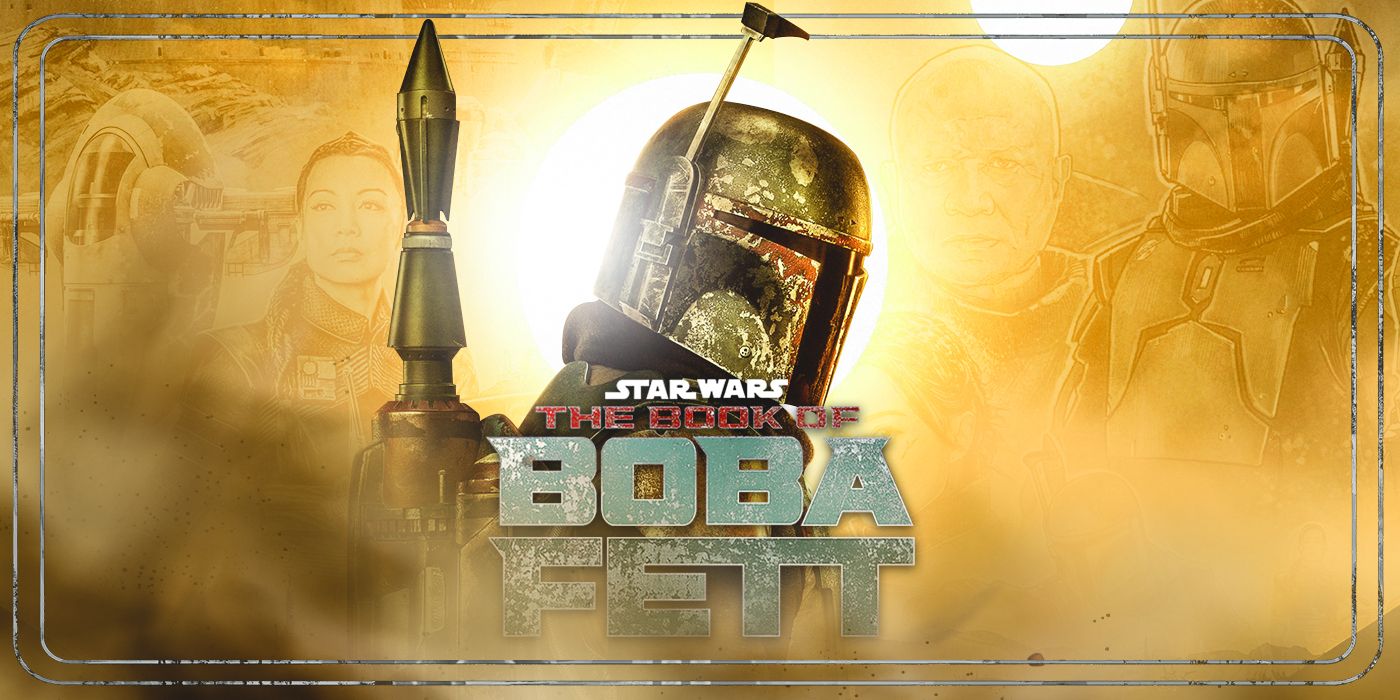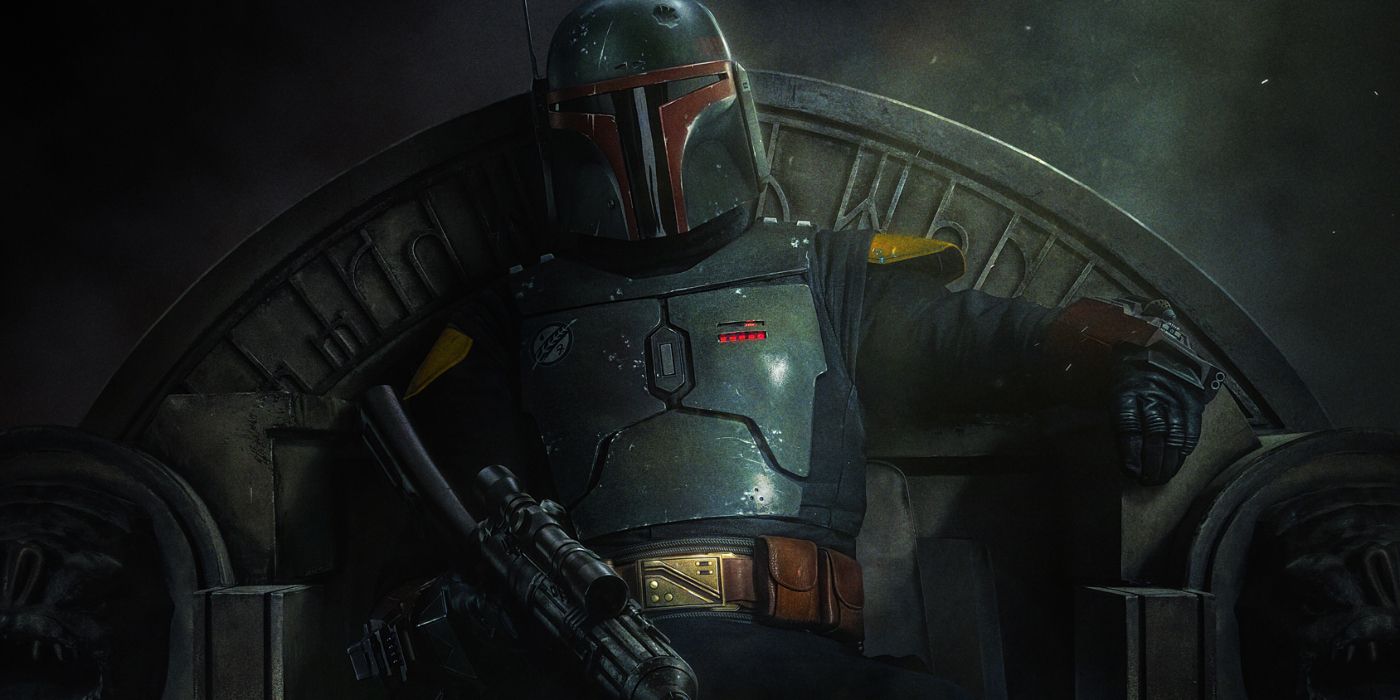For years, Boba Fett existed as an extrapolation. Fans drew their own conclusions, pulling from Expanded Universe stories but ultimately filling in the blanks themselves. The bounty hunter we saw in The Empire Strikes Back and Return of the Jedi was more effective as an incentive to buy Star Wars toys than he was as a character. Now, for the first time in decades, that is changing. The Book of Boba Fett is far from the most exciting or compelling Star Wars TV show, but as an exploration of a famously underwritten sci-fi staple, it's incredibly effective. Not bad for a series about a guy who originated as a “super-trooper.”
One of the casualties of Disney's acquisition of Lucasfilm was the omission of the Expanded Universe, which was later rebranded as Star Wars Legends and deemed non-canonical in relation to the existing franchise. In those stories, Boba's post-Jabba exploits were far more interesting than any of his Clone Wars-era adventures, and to an extent, elements of Boba's Expanded Universe biography have found their way into The Book of Boba Fett. For diehards, these stories are scripture, but now, the Legends continuity has about as much bearing on Star Wars canon as fanfiction. While that's disappointing for the legions of readers who grew attached to Legends Boba, it also presents Lucasfilm with a golden opportunity: build Boba from the ground up.
And that's exactly what showrunners Jon Favreau and Dave Filoni are doing. The Book of Boba Fett enriches the bounty hunter's appeal not by showing us what we want to see but by deconstructing the ideal that has made the character an emblem of fan entitlement. These fans treated Fett as an immutable badass, but the only thing not subject to change was their rigidity. Meanwhile, Favreau and Filoni are using the broader strokes of Boba's transformation into an anti-hero while making some notable amendments along the way.
Part of what made OT Boba so compelling from the jump was that we knew almost nothing about him. Well, other than the fact that he was the only bounty hunter able to nab the slippery Han Solo (Harrison Ford). Beyond that, he was little more than a bounty hunter the Empire called to get a job done. We got serious “don't trifle with this dude” vibes, but that's all they ever were. Hopes. Assumptions. Feelings rooted in what we wanted rather than what was actually on the screen in front of us.
But Favreau and Filoni strike a balance between fan service and subversion. They have a different read on what their audience is looking for than Rian Johnson did when he helmed the brilliant (but also criticized) The Last Jedi. The pair tosses defiant cyborg-teens into a gang war, shaking up the franchise aesthetic before re-grounding us in Star Wars concepts we already know and recognize: rancors, Wookiee gladiators, Fennec Shand (Ming-Na Wen), a return to the Sarlacc pit, and the list continues. But their primary focus remains the expansion and exploration of a character who deserves dimension.
The Boba Fett who accidentally tumbled into the Sarlacc pit in Return of the Jedi is not the Boba who crawled out. Framing that embarrassing event as a rebirth is a masterstroke of brilliance, but it only works if viewers accept the story being told to them. The need to steer others' stories is replacing the desire to let stories inform us. The Book of Boba Fett is an opportunity to embrace what Boba Fett is becoming rather than cling to a version of the character only loosely pulled from existing stories. The showrunners are even creating an environment that's conducive to this by metering its risks and trying to stay true to what they know people love. Essentially, Favreau and Filoni are attempting to make viewers as comfortable as possible while they reshape and build out this character anew.
The Book of Boba Fett is both a departure from the “Boba Fett ideal” that many still cling to and a reinforcement of qualities the character has always had: resourcefulness, ruthlessness, strong respect for family and community (even when he operated alone for years). If anything, Boba's behavior is consistent with attitudes and patterns glimpsed in his minor role during The Clone Wars. He's vengeful but not cruel, aloof but driven, and savvy enough to achieve his goals. The heist in The Clone Wars episode “Bounty” encapsulates Boba perfectly, and The Book of Boba Fett is well on its way to doing the same.
The unbeatable, badass Boba from our imaginations never existed. He fights. He fails. He mourns his dead loved ones. He gets back up. He prevails. The myth that Boba is an indestructible legend has made it difficult for fans to watch him struggle. Perhaps it's a sore spot; after all, his most memorable moment in the original trilogy was when Han Solo accidentally sent him careening into the maw of a beaked desert monster. But characters are defined by what they do with loss. The alchemical nature of failure begets resilient versions of ourselves. Lucasfilm is ultimately giving Boba depth and nuance, two qualities he hasn't had until now.
The Book of Boba Fett is attempting to redefine what “cool” means. It's uneven in crucial places and occasionally painfully boring, but it forces its lead to abide by rules to which literally every other fictional character is bound. Some will see it as stripping Boba Fett of his appeal. Others will see it as the beginning of his appeal. Hopefully, the latter camp is busier than the former.


